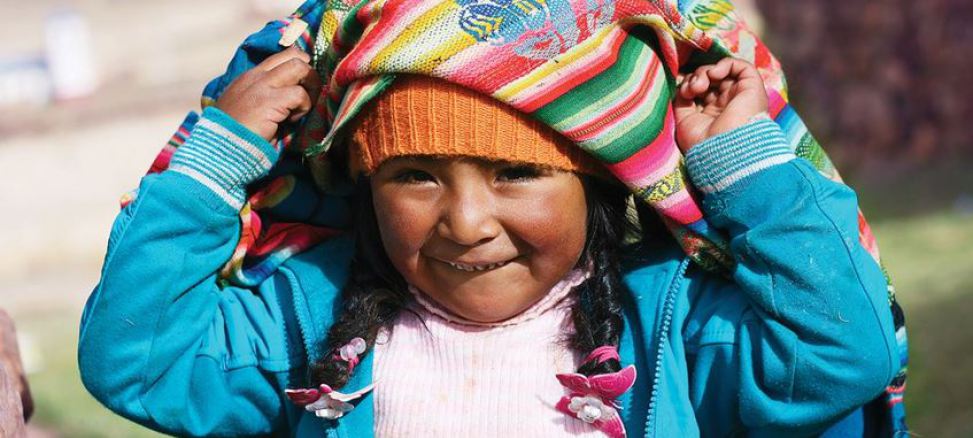
During our General Chapter, last May, we had the opportunity of assessing our mission ministries in the countries where we are currently serving. Concerning South America, the Provincial Superior, Sr. Rosario Zari, m.i.c., gave us a profile of the Sisters’ commitments and an overview of the political, social, and ecclesial context.
By Rosario Zari, m.i.c.
We are present in Bolivia, Peru and thanks to two groups of Associates (AsMIC) we are also involved in Chile. For several years these three countries have had a democratic system, which means that “coups d’état” and military dictatorships are things of the past. However, there are serious political, social and economic problems. Bolivia and its president Evo Morales are going through a process of change supported by the history of native cultures expressed by “the good life”. Many natives and country people have been feeling in recent years that they are a part of government policies. But there are also great deceptions. Meanwhile, in Peru, we have a neo-liberal political system. In spite of their ideological differences, both countries are experiencing similar problems.
On the Social Level
The people are more aware of the injustices being done and they are not satisfied with the manner in which the fruit of economic growth is distributed: the rich are getting richer and the poor are becoming poorer. Hence the rise of conflicts, strikes and claims of all kinds. In Bolivia, there seems to be a better distribution of wealth. The many social programs seem to tone down the social conflicts for the moment.
At the Political Level
There are always conflicts between the State and the native people. The latter populations totally reject the presence and expansion of the extractive industries (mining, forests, hydrocarbons, etc.) in the Andean and Amazonian territories. The governments do not consider their opinions, their rights, or their defense of the environment. However, the mining workers are more and more aware of their rights and claim them more forcefully.
For example: In Espinar, where the MIC Sisters worked for twenty years, the miners carried their struggle to a successful conclusion and obtained major benefits for Espinar and the Cusco region. More recently, the Natives of Pichanaki got the great Argentine oil company to back away. Fortunately, the government managed to maintain social harmony throughout this struggle. In Bolivia, because of his Andean roots and the political option of his government, President Evo Morales seems to be more attentive to and respectful of the native population; therefore, he exerts better control of the extractive industries.
On the Economic Level
In spite of the global economic crisis that has taken place, the economy of Bolivia and Peru was not shaken. These countries are considered a success in terms of economic growth and macroeconomic stability (low inflation rate, abundant reserves, lowering of the public debt).
On the Ecclesial Level
For the Latin-American Church, the two meetings of Pope Francis with the Peruvian theologian Gustavo Gutierrez, author of the Theology of Liberation, brought about the end of any doubt or censure regarding this theology that has marked the life of the Church, especially the Latin-American Church.
During the year 2014, the Peruvian government enacted two laws: therapeutic abortion and civil union between same sex persons. These caused an outpouring of writings and animated discussions. Believers and practicing Christians rejected the laws and protested in support of traditional values. Finally, the government withdrew the two laws.
As Missionary Sisters of the Immaculate Conception, we experience the anguish and the hopes of Latin America, especially with the people among whom we are: Bolivians, Peruvians and Chileans.
Local Communities and Ministries
Our Province has twenty-one Sisters including four scholastics and three novices assigned in six local communities. Our current ministries include: working on a pastoral level at Marie-de-la-Providence College in Peru as well as at the Institute of Rural Education in Bolivia; presenting pastoral and vocational youth sessions; coordinating the mission awareness program at the level of the vicariate; involvement in various parish ministries and coordinating religious education programs; training rural catechists and pastoral agents; providing pastoral health-care where and when needed; reaching out to peasant communities; maintaining the “Délia Tétreault” alternative education center.
Positive and Reassuring Points
The Sisters understand the importance of the above commitments and sincerely try to reflect the MIC charism. They try to give the people they meet a prophetic witnessing to the gratuitous love of God. They are faithful to their calling and to the MIC identity. We have at heart the integral formation of the young girls who attend our institutions; our aim is to prepare them in taking responsibility and shaping their future.
As a Province, we are currently at a key moment for shaping the future. We wish to practice intercultural living as a sign of the Kingdom of God in a world which seeks unity in diversity. This means trying to create a community life that goes further than mere tolerance of cultural differences among us, a community life that motivates us to enter into a process of personal and communal transformation.
In 2013, we welcomed in our Province two new Sisters from Haiti and Madagascar to be part of the Inter-Provincial Novitiate; their presence among us has enriched our Province. Lay people who have come to serve on a long or short term basis have also been a source of missionary dynamism. We realize that the MIC gift does not belong to us. It also belongs to the Church, to the world and it is to be shared. In this sense, we think that in order to keep alive the missionary spirit, the young scholastics should live a mission experience outside the Province.
A quick glance at the road travelled together has helped us understand the current reality of our Province. We have perceived the presence and fidelity of God in all circumstances; we have witnessed His loving care for all peoples we have come across in our ministries.
(MIC Mission News, Winter 2016, p. 14)
Portal Archives
Solidarity With Us
Pages of Our History
Follow Us
Links
© 2019 - Presse Missionnaire MIC / MIC Missionary Press
Numérisation des documents / Documents scanning: Bibliothèque et Archives nationales du Québec
Les Sœurs Missionnaires de l'Immaculée-Conception
Conception graphique / Graphic Design: Sednove

 Facebook
Facebook